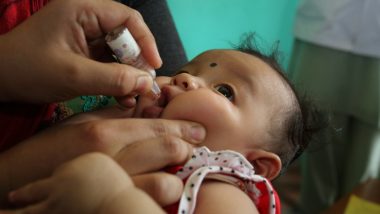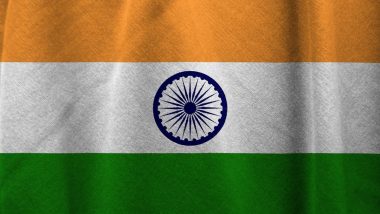Did you know that vaccines save 2-3 million lives every year? Vaccination or immunisation is an effective way of weeding out dangerous diseases that can claim and maim many lives. While immunisation improves health and increases the life expectancy of the general population, it also has positive socio-economic impacts. India has the largest number of births in the world with 26 million babies born every year and also accounts for 20 percent of infant mortality worldwide. Although the nation has made some strides in reducing infant deaths in the past few years, India’s vaccination statistics are not very encouraging. That's why, every year World Immunisation Week is observed on the last week of April to focus attention on to raise awareness about immunisation or vaccination, especially in countries like India, which are lagging behind. Despite being the leading producer and exporter of vaccines, ironically, India is also home to one-third of the world’s unimmunised children.
As a parent, you should do everything in your capacity to keep your child safe from deadly diseases and ensure them a long, productive life. Did you know the shocking reasons why parents don't vaccinate their children? And the first step in that direction is to treat your child’s vaccination schedules seriously. Here are the important vaccines you should never forget to give your child.
BCG Vaccine
BCG or Bacillus Calmette–Guérin vaccine is an intradermal injection which is injected into the child's skin.
When Is It Given?
BCG vaccine is given shortly after the child’s birth.
Why Is It Given?
It’s administered to your child to prevent tuberculosis, a deadly disease that is a leading cause of death in, especially in developing countries like India. The vaccine is among the most widely-used ones in the world, which also has a documented protective effect against other infectious diseases like meningitis and disseminated TB in children. Bear in mind that it doesn’t prevent primary infection and reactivation of infection that is already in the person’s body.
OPV Vaccine
OPV stands for oral poliovirus vaccine, which is administered to the child in the form of oral drops.
When Is It Given?
The OPV drops are given in several doses to the child soon after birth till the age of five.
Why Is It Given?
One of the most fundamental vaccines for your child, OPV helps in preventing Poliomyelitis or polio, which affects the nerves and causes muscle weakness. According to CDC, almost all the children (99 out of 100) who get the recommended dosage of OPV vaccine will be shielded from the crippling disease. The vaccine is given free of cost by the Indian government. Thanks to which, today India has been declared as ‘Polio-Free.’
DTP Vaccine
DTP, also known as the triple antigen, stands for Diphtheria, Tetanus and Pertussis. It is administered as an intramuscular injection.
When Is It Given?
DTP is given to babies at 1.5 months, 2.5 months and 3.5 months, till the child reaches 1.5 years of age. In total, the child should be given five doses of the vaccine.
Why Is It Given?
DTP protects against three deadly diseases that can cause severe disability and death. Diphtheria is a serious disease of the nose and the throat that can block the airways, damage the nerves and heart, and even paralyse the infected. Tetanus or “lockjaw” causes a person’s muscles to stiffen, making it difficult for them to open their mouth or swallow. It causes death in two out of ten cases. Pertussis or whooping cough is a highly contagious respiratory illness can be deadly for children who are less than a year old.
MMR
Like DTP, MMR offers protection against three diseases -- Measles, Mumps and Rubella. In some countries, parents avoid MMR vaccine, fearing it can have side effects such as autism in children. But studies do not support the claim that it does.
When Is It Given?
The vaccine is given to the child at 9, 12 and 15 months of age. A study suggests that a better response to the MMR vaccine was obtained on or after 12 months of age.
Why Is It Given?
MMR vaccine, although not considered mandatory, offers protection against three major diseases – measles, mumps and rubella, which can cause irreversible birth defects. Measles causes 9 lakh child deaths worldwide. Complications of mumps include deafness, meningitis, encephalitis, etc. Rubella or German measles, although mild in children, can be dangerous for women in their pregnancy.
The adage ‘Prevention is better than cure’ holds true for immunising your child. Getting your child vaccinated at the right time can keep them protected against maiming diseases, which could affect the quality of their lives. Despite the growing protests by “anti-vaxxers” against vaccines like MMR, there is no concrete proof that vaccinations have any adverse long-term effects. By vaccinating your child, you are also protecting the future generations from deadly diseases. Today, diseases that once claimed lives by the thousands, like smallpox, have been eliminated thanks to immunisation. Also read why breast milk is the first source of immunisation for your child.
(The above story first appeared on LatestLY on Apr 27, 2018 02:47 PM IST. For more news and updates on politics, world, sports, entertainment and lifestyle, log on to our website latestly.com).













 Quickly
Quickly




















